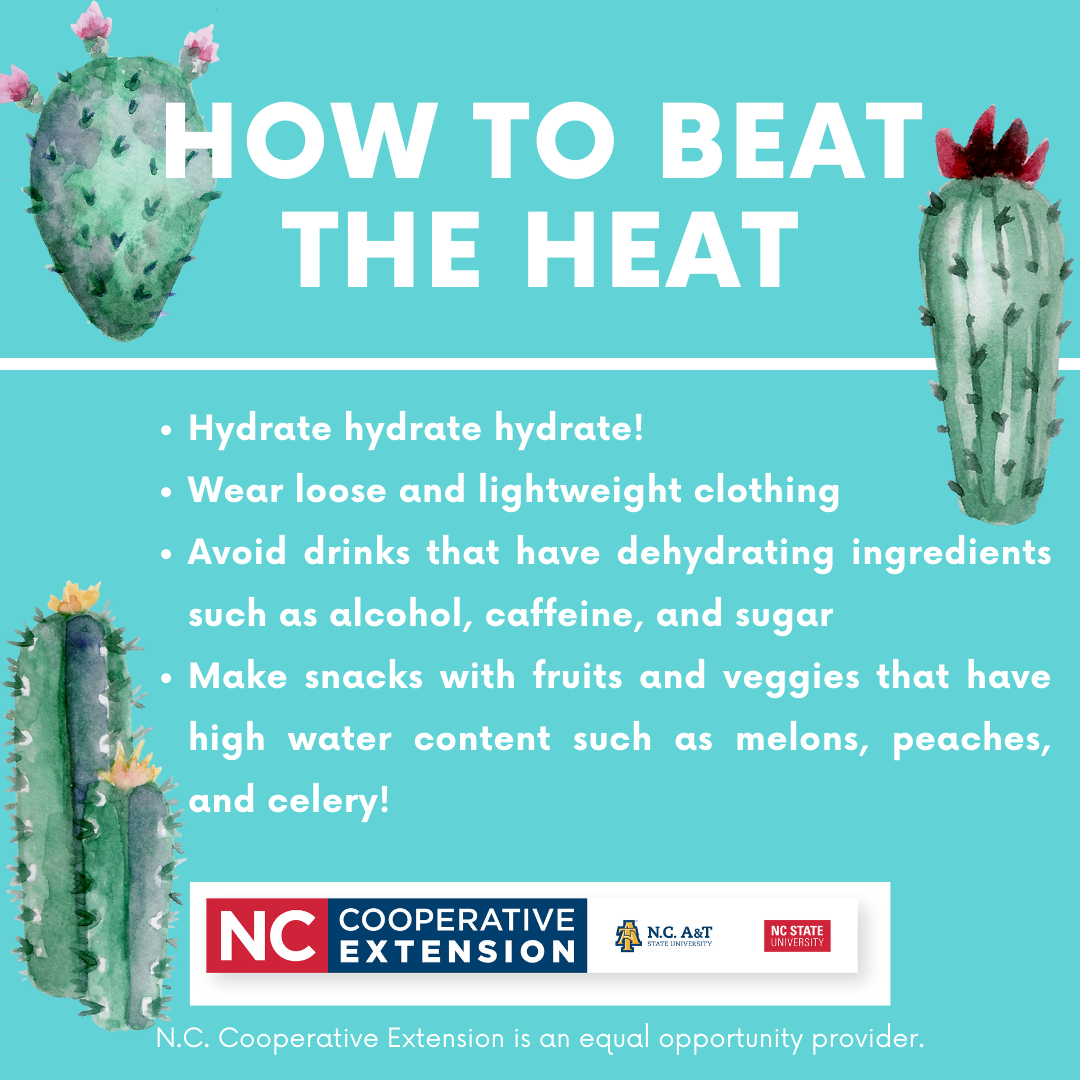Beat the Heat
go.ncsu.edu/readext?806976
en Español / em Português
El inglés es el idioma de control de esta página. En la medida en que haya algún conflicto entre la traducción al inglés y la traducción, el inglés prevalece.
Al hacer clic en el enlace de traducción se activa un servicio de traducción gratuito para convertir la página al español. Al igual que con cualquier traducción por Internet, la conversión no es sensible al contexto y puede que no traduzca el texto en su significado original. NC State Extension no garantiza la exactitud del texto traducido. Por favor, tenga en cuenta que algunas aplicaciones y/o servicios pueden no funcionar como se espera cuando se traducen.
Português
Inglês é o idioma de controle desta página. Na medida que haja algum conflito entre o texto original em Inglês e a tradução, o Inglês prevalece.
Ao clicar no link de tradução, um serviço gratuito de tradução será ativado para converter a página para o Português. Como em qualquer tradução pela internet, a conversão não é sensivel ao contexto e pode não ocorrer a tradução para o significado orginal. O serviço de Extensão da Carolina do Norte (NC State Extension) não garante a exatidão do texto traduzido. Por favor, observe que algumas funções ou serviços podem não funcionar como esperado após a tradução.
English
English is the controlling language of this page. To the extent there is any conflict between the English text and the translation, English controls.
Clicking on the translation link activates a free translation service to convert the page to Spanish. As with any Internet translation, the conversion is not context-sensitive and may not translate the text to its original meaning. NC State Extension does not guarantee the accuracy of the translated text. Please note that some applications and/or services may not function as expected when translated.
Collapse ▲As we welcome another July, we must also accept what comes with it; heat.
It is important to take extreme heat seriously because it is the leading cause of death of any weather-related hazard. Taking the proper steps to avoid overheating and dehydration can prevent heat-related illnesses.
Dehydration prevents you from being able to produce adequate sweat, which is an important cooling mechanism on hot days. Signs of dehydration include fatigue, dizziness, dry mouth, and a decrease in urination. Avoid dehydrating ingredients such as alcohol, caffeine, and sugar, and make sure to drink plenty of water.
Carry a water bottle with you and drink extra water if you plan on exercising.
On very hot days you should go outside earlier in the day or in the evening when the sun is lower, and minimize time spent outside during the middle of the day when it is hottest.
Wear loose and lightweight clothing to avoid overheating.
Eat your fruits and vegetables. Some foods that contain over 90% water include melons such as watermelon and cantaloupe, strawberries, peaches, cucumber, lettuce, and celery. Add some sliced cucumber to your water and enjoy a fruit or veggie salad for a refreshing meal that beats the heat.
References:
FEMA July 2021 Individual and Community Preparedness Newsletter





